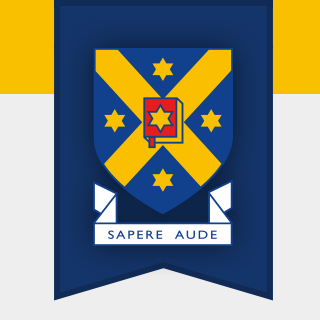The Master of Economics (MEcon) will equip students to be either professional practitioners or academic researchers in the field of Economics. It can also provide a pathway to doctoral-level study in Economics. The degree consists of both coursework and a research dissertation.
The normal admission requirement is a Bachelor's degree majoring in Economics and an average grade of at least B for the relevant 300-level papers. Candidates should have also completed 300-level papers in mathematical economics and econometrics. Admission on the basis of alternative qualifications and experience is possible.
The Master of Economics can be completed in one year of full-time, or its equivalent in part-time, study. You may begin the MEcon degree in first or second semester.
Requirements:
- The 180 point programme of study shall consist of four compulsory papers
- ECON 410 Advanced Microeconomic Theory
- ECON 411 Advanced Macroeconomic Theory
- ECON 412 Macroeconometics, or ECON 413 Microeconometrics
- ECON 590 Research Dissertation (60 points)
- Plus papers to the equivalent of 60 points from:
- ECON 402 Growth, Institutions and Development
- ECON 403 Monetary Economics
- ECON 404 International Economics
- ECON 405 The Economics of Natural Resources and Public Choice
- ECON 406 Labour and Population Economics
- ECON 407 Topics in Advanced Economics
- ECON 412 Macroeconometics
- ECON 413 Microeconometrics
Regulations for the Degree of Master of Economics (MEcon):
- Admission to the Programme
- Admission to the programme shall be subject to the approval of the Pro-Vice Chancellor (Commerce).
- Every applicant must either
- be a graduate, and
- normally have achieved an average grade of B in the papers satisfying the final year requirements for the degree, including both econometrics and mathematical economics, or
- have equivalent alternative qualifications or experience acceptable to the Pro-Vice-Chancellor (Commerce).
- In considering an applicant's qualifications, regard will be given to the detail of the course of study followed to gain the qualification, as well as the applicant's performance in the programme.
- Structure of the Programme
- Every programme of study shall consist of approved papers from the schedule of papers available for the degree of Master of Economics to the value of 180 points.
- With prior approval from the Pro-Vice-Chancellor (Commerce), papers worth up to a maximum of 60 points in a relevant subject offered by another tertiary institution, may be granted transfer credit for equivalent paper(s) within the programme, Such credits will be considered on a case-by-case basis.
- A candidate shall, before commencing the investigation to be described in the research dissertation, secure the approval of the Programme Co-ordinator concerned for proposed course of the investigation.
- Duration of the Programme
- A candidate must normally complete the requirements for theprogramme in 12 months of full-time study, and a part-time candidate within four years of commencing the Programme.
- Exceptions to the normal duration of a programme shall be permitted only with the approval of the Pro-Vice-Chancellor (Commerce).
- Withdrawal from the Programme
- Where a candidate withdraws from the programme after completing the prescribed papers, whether voluntarily or otherwise, the Pro-Vice-Chancellor (Commerce) may recommend the award of the Postgraduate Diploma in Commerce or determine which papers shall be credited towards the diploma.
- Examination of the Dissertation
- The dissertation shall normally be reviewed by two examiners, neither of whom is the candidate's supervisor, to be determined by the Programme Co-ordinator.
- Each examiner shall supply a written report and recommend a mark and grade on the basis of the dissertation as submitted.
- Where there is disagreement over a final result, an independent moderator determined by the Programme Co-ordinator shall arrive at a decision.
- Level of Award of the Degree
- The degree may be awarded with distinction or with credit.
- Variations
- The Pro-Vice-Chancellor (Commerce) may in exceptional circumstances approve a course of study which does not comply with these regulations.
